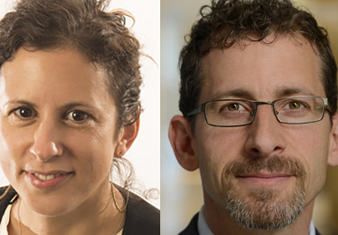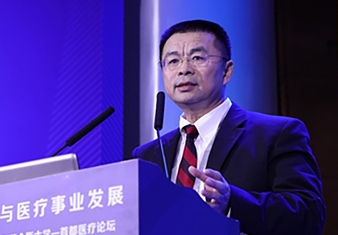
Better Together
New cross-divisional centers draw upon our strongest asset: our people.
Johns Hopkins’ greatest strength is its people. Now more than ever, the administration is focused on the creation of cross-divisional centers as a means to facilitate collaboration between faculty members across the disciplines. These boundary-breaking centers are eliminating traditional research silos and strengthening the university’s ability to make new discoveries.
- Launched in May 2016, Space@Hopkins connects the schools of Arts and Sciences, Engineering, and Medicine, and Applied Physics Laboratory in their common pursuit of civilian space research. To explore, for example, the health repercussions of space travel, medical faculty collaborate with electrical engineers working on sensors and with computer scientists working on data collection systems, pairings that are unique to the Hopkins program.
- Established in April 2015 with a grant from Bloomberg Philanthropies, the Center for Government Excellence connects Johns Hopkins researchers with cities across the country to assist in creating data infrastructures to transform the way their governments operate. The center is part of the university’s cross-disciplinary 21st Century Cities Initiative.
- The Malone Center for Engineering in Healthcare was established in February 2016 as a new collaborative research effort of the schools of Engineering, Medicine, Nursing, and Public Health to enhance the efficiency, effectiveness, and consistency of health care.
- Launched in early 2016, the Kavli Neuroscience Discovery Institute brings together an interdisciplinary group of researchers from 14 different departments in the schools of Medicine, Engineering, Arts and Sciences, and Public Health, and the Applied Physics Laboratory to investigate the workings of the brain.
- Launched in 2015 with a $10 million gift from Jeff and Shari Aronson, the Aronson Center for International Studies brings SAIS and the Krieger School of Arts and Sciences together in closer collaboration to develop solutions for world problems and train new generations of global experts.
- Johns Hopkins inHealth launched in October 2016 as a partnership between Johns Hopkins Medicine and the Applied Physics Laboratory to bring data analysis and systems engineering to health care.
Photo: Kathryn Edin, left, director of the 21st Century Cities Initiative, is a sociologist in the Krieger School of Arts and Sciences and a Bloomberg Distinguished Professor. Beth Blauer is executive director of the Center for Government Excellence and a research professor in the Department of Sociology in the Krieger School.



